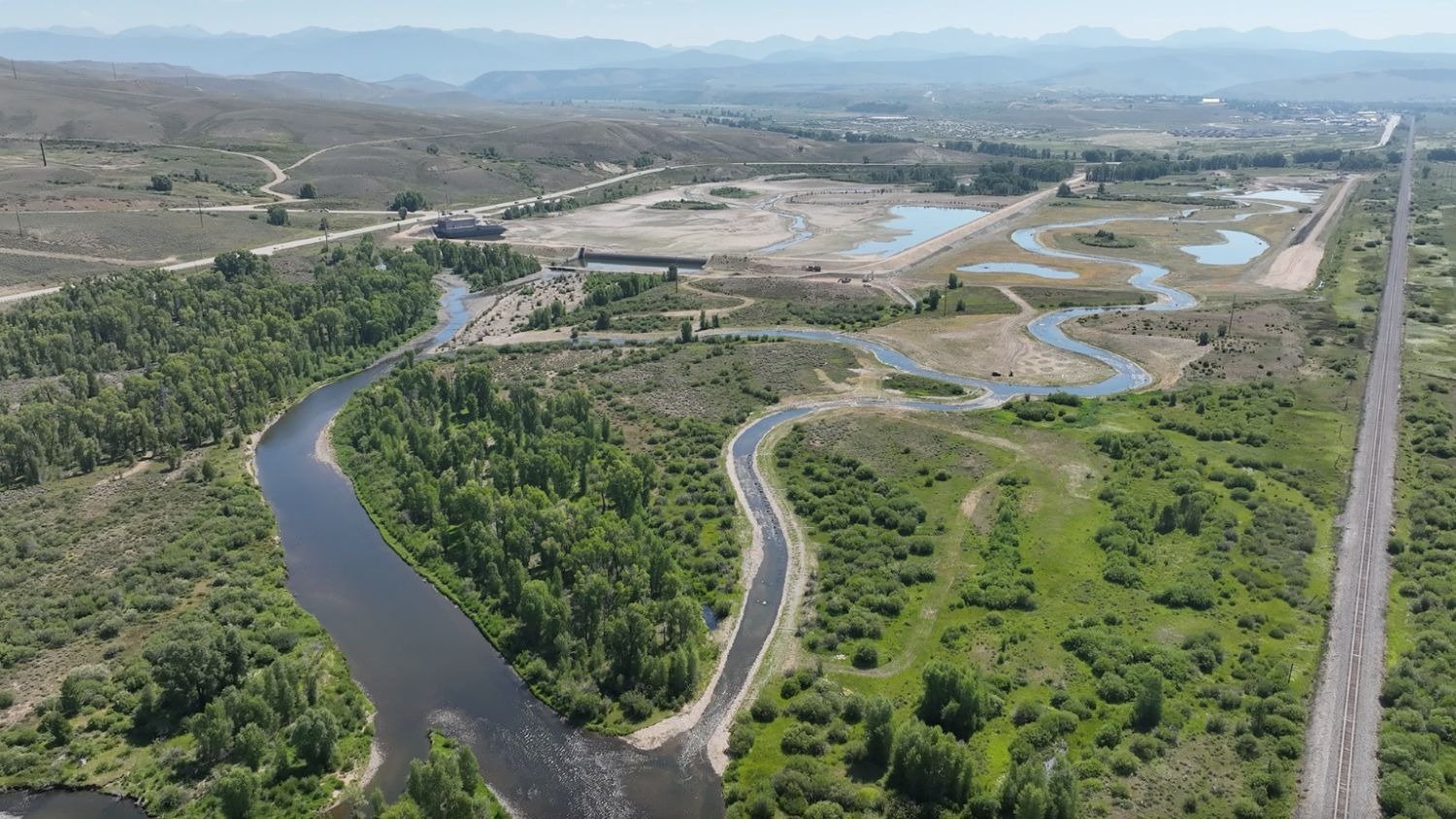Protecting Colorado Waters and Wetlands
On May 25, 2023, the US Supreme Court issued a ruling in Sackett vs. EPA that sharply reduced Clean Water Act protections for wetlands vital to healthy and functioning watersheds. While not directly addressed, the decision also appears to put streams that don’t have year-round flow at risk of losing Clean Water Act protection, as well. Those ephemeral and intermittent streams represent a majority of Colorado’s waterways.
With federal protection for most of Colorado’s waterways jeopardized under the Court’s decision, we need the State to step up and ensure our waters remain protected. Water quality protection must start at the source. If the wetlands, headwaters, and other feeder streams are opened to degradation, all of our waters will suffer along with the fish, wildlife, and communities that depend upon them.
The good news is that the Colorado Water Quality Control Act already covers direct discharge of point-source pollutants at the state level. The bad news is that dredging and filling of waters – the kind of activities managed under the Clean Water Act’s 404 permitting program – do not have any state program in place for permitting, leaving a massive gap in the protection of our state’s watersheds.
Speaker of the House Julie McCluskie is working with the Polis Administration on a bill that would create a new permitting program for dredge and fill activities within the Colorado Water Quality Control Division. Colorado TU and other conservation-minded partners are providing input to try and ensure that this bill provides adequate protection, at least as strong as what was in place before the Sackett decision.
So, what would be some of the key ingredients in making a good bill? Some of the elements Colorado TU is recommending include:
Ensure that the state program is no less protective of Colorado waters and watersheds than the federal programs that were in place prior to the Sackett ruling.
Recognize the importance of protecting ephemeral and intermittent streams, given their critical role in shaping the health of downstream waterways.
Incorporate protections for rare and ecologically important wetlands including fens, playa lakes, and wet meadows – for their importance to watershed health and fish and wildlife habitat.
Use the tried-and-true Clean Water Act approach of first avoiding, then minimizing, and finally mitigating impacts, recognizing that prevention of impacts is always preferable to remediation. Where less impactful alternatives are available for a proposed project, they should be used.
Offer a streamlined and low-cost general permit program for activities with minimal adverse impacts individually and cumulatively. These permits can set appropriate terms and conditions to ensure that activities being approved are completed in a minimal-impact way.
Ensure that compensatory mitigation – where impacts cannot be fully avoided – addresses not simply the replacement of wetland and water acreage but replaces the lost wetland functions, recognizing that newly constructed wetlands often function less effectively and may require more than a 1-for-1 replacement rate to offset wetland losses.
Respect long-standing exemptions under the Clean Water Act for standard farming and silviculture practices to avoid creating new burdens on farmers and foresters.
Include effective enforcement to ensure dischargers comply with the program’s protections for Colorado wetlands and waters.
Look for more information and opportunities to weigh in with your elected representatives as that bill is introduced and moves forward.
Save the Date for 2024 STREAM Programs!
We are excited to announce several STREAM Programs in 2024!
STREAM Programs are incredible environmental education programs for youth, families, and the community that incorporates river conservation, outdoor exploration, and fly fishing skills. We take the traditional STEM (science, technology, engineering, math) educational model and add recreation and arts to create STREAM. CTU works closely with TU Chapters and Partner Organizations to make these programs possible.
Check out our upcoming 2024 STREAM Programs below!
Please note that some of these programs are open to the public for registration and some are in partner events that serve a specific audience. Click the links below for more information.
4/23 - STREAM Program in Colorado Springs, CO
More information coming soon!
5/4 - STREAM Exploration Program in Erie, CO
More information coming soon!
5/10 - STREAM Girls in Pueblo, CO
More information coming soon!
6/15 - STREAM Keepers in Avon, CO - Contact Walking Mountain Science Center for more information.
7/9 - STREAM Explorers Program in Littleton, CO
More information coming soon!
7/23 - STREAM Keepers in Delta, CO - Contact The Nature Connection for more information
7/24 - STREAM Keepers in Hotchkiss, CO - Contact The Nature Connection for more information
Troutfest Colorado 2024 Registration Now Open
Colorado Trout Unlimited is excited to announce that Troutfest Colorado 2024 registration is now open!
CTU Awarded $150,000 Grant
The Colorado River District has awarded Colorado Trout Unlimited $150,000 through the Community Funding Partnership to aid in implementing Phase 3 of the Middle Colorado Agricultural Collaborative. This project focuses on upgrading five diversions along Elk and Canyon Creeks. Tasks encompass obtaining federal clearances, finalizing engineering designs, and construction. Projects include combining ditches, which will keep heavy machinery out of the stream, and essential infrastructure enhancements that will provide for fish passage and improve agricultural efficiencies and maintenance operations, which will enable voluntary bypass flows when crops and animals do not need the diverted water.
The goal of the Middle Colorado AG Collaborative is to continue opening Elk and Canyon Creeks to spawning and migrating fish from the Colorado River by working with agricultural water diverters to make their diversion structures fish-friendly. To date, Trout Unlimited has completed two successful projects on Elk Creek (Ware and Hinds Fish Passage-2018) and Canyon Creek (Fish Passage-2021). This project is a collaboration between TU national, CTU, Eagle Valley TU chapter #102, and Ferdinand Hayden chapter #008.















